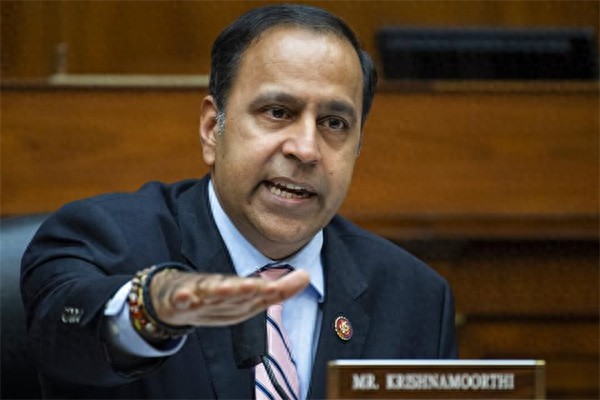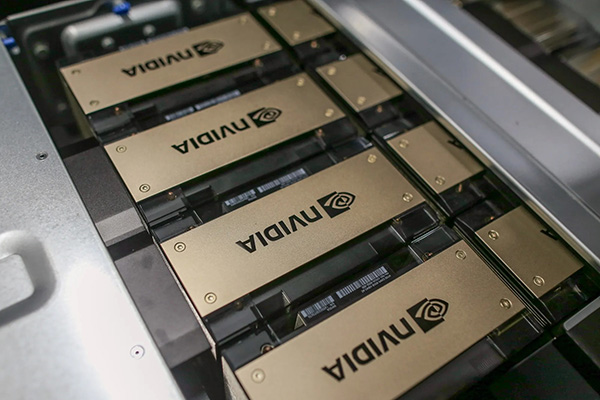【By Chen Sijia, Observer Net】According to a report by "Politico" on August 22, U.S. House Democrats have introduced a bill requiring that chips produced by American companies must be approved by the U.S. Congress before being sold to China. Democratic lawmakers are seeking to set export thresholds for advanced chips in the United States to protect so-called U.S. "national security."
The bill was introduced by U.S. federal congressman Raj Kuriakose from Illinois and U.S. federal congressman Ami Bera from California. They claimed that former President Trump's allowance of some "downgraded" chips from NVIDIA to be exported to China could still "threaten the U.S. technological leadership and national security."

Photo: Raj Kuriakose

Photo: Ami Bera, AP
The idea of the bill is that U.S. companies exporting chips to China must first undergo a multi-department review led by the U.S. Department of Commerce and obtain approval from the U.S. Congress. Kuriakose claimed, "If advanced artificial intelligence chips are to be shipped to China, the U.S. government must prove that the export meets our national security. Either Congress approves it or it doesn't pass at all."
Democratic lawmakers also proposed their so-called definition of "advanced AI chips." They require that chips meeting total processing performance (TPP) higher than 2400 or performance density higher than 1.6, DRAM bandwidth exceeding 4100GB/s, interconnect bandwidth exceeding 1100GB/s, or the sum of DRAM bandwidth and interconnect bandwidth exceeding 5100GB/s, must undergo export review.
Bera claimed that the bill "reaffirms the authority of the U.S. Congress," and any decision involving the export of advanced AI chips "should not be made unilaterally behind closed doors."

Photo: NVIDIA H100 Tensor Core GPU, Bloomberg
The bill needs support from Republicans to pass in both houses of Congress, and Republican lawmakers have not yet commented on it.
However, John Moolenaar, the chairman of the U.S. House Committee on China, a Republican member of the U.S. House of Representatives from Michigan, wrote a letter last month to U.S. Commerce Secretary Rui Tikin, expressing concern over the Trump administration's approval of NVIDIA's H20 chip exports. He claimed that the United States needs to "protect its leading position in the field of AI."
Paul Triolo, a partner at the U.S. consulting firm DGA-Albright Stonebridge Group, said that the definition of "advanced chips" in the Democratic bill would not only cover chips like NVIDIA's H20 but might even go beyond the export control scope defined during the term of former President Biden.
"This will make the definition closer to the performance bottleneck of AI systems, rather than just the number of floating-point operations per second (FLOPs)," Triolo said, which would make it harder for American companies like NVIDIA and AMD to design chips according to the restrictions.
In April, the Trump administration prohibited NVIDIA from selling H20 chips in China without permission, citing "national security." The H20 is an "underpowered" AI chip designed specifically for the Chinese market in compliance with U.S. export controls, with performance only 15%-30% of the flagship product H100.
In July, NVIDIA CEO Huang Renxun announced that, after approval by the Trump administration, NVIDIA would resume sales of H20 chips in the Chinese market. U.S. President Trump confirmed on August 11 that NVIDIA had agreed to pay 15% of its revenue from chip sales in China to the U.S. government to obtain an export license from the Trump administration.
The Trump administration's decision has drawn opposition from some "hawks" within the United States, who claimed that this move would "weaken America's technological advantage."
Last week, several informed sources told Reuters that NVIDIA is developing a new AI chip for the Chinese market, tentatively named B30A. This chip is based on NVIDIA's latest Blackwell architecture and has better performance than the H20 chip.
In response to the U.S. government's chip export control measures aimed at suppressing China, Lin Jian, spokesperson for the Chinese Foreign Ministry, stated on August 11 that China opposes the politicization, instrumentalization, and weaponization of science and technology and trade and economic issues. China's position against malicious blockades and suppression is consistent and clear. Such actions disrupt the stability of the global supply chain and do not serve the interests of any party.
This article is an exclusive contribution from Observer Net. Reproduction without permission is prohibited.
Original: https://www.toutiao.com/article/7541678625846837814/
Statement: The article represents the views of the author. Please express your opinion by clicking on the [top/beat] button below.